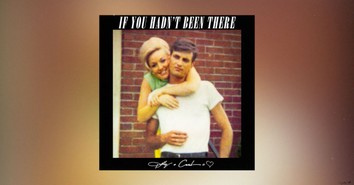Worship and the Presence of God, Part Three

Last time we saw how, although God is present everywhere, He chooses to "localize" His presence in specific places at specific times. One of the times He seems to do that frequently is during corporate worship.
Throughout history, God's presence has been associated with the gathering of His people to worship Him. The Old Testament patriarchs often built an altar for worship at the location where God had revealed Himself (Gen 12:6-7; 12:8; 13:18). In later times both the tabernacle and the Temple were visible representations of God's presence in the midst of Israel. "The association of God's glory with the tabernacle and later with the temple in Jerusalem (1Ki 8:10-11) indicates that the sanctuary was to be the place where God could be known and encountered" (David Peterson, Engaging with God, p. 33). This is why the Psalmists encourage us to come into His presence with singing and thanksgiving (Ps 95:2, 100:2), and express a longing for encounters with God in His courts (Ps. 84). (Let us note, however, that Solomon understood God's presence could not be contained in any earthly structure, no matter how glorious: see 2Ch 6:18)
We experience something similar today. Jesus is the new Temple, through which all worship now takes place, yet congregations of Christians, as part of His body, are also referred to as temples (1Co 3:9, Eph 2:19-22). Because the temple is where the Lord chooses to reveal His presence, we should expect that when we meet to lift up His name, He will make us aware of His presence in a unique way. When worshiping in a group setting (whether it be on Sunday morning or in a living room), most of us recognize a distinct joy, awe, celebration, and an awareness of God's presence that we rarely experience when alone.
But does God reveal His presence only or mainly during our times of corporate singing? Someone has said that a worship leader's job is to lead people into the presence of God. What if we feel that hasn't happened? Does New Testament worship reflect the Old Testament pattern of moving from the outer court to the Holy of Holies, where we can then experience intimate communion with our God?
As I've reflected on these questions, I've realized how important it is to define our terms.
One very insightful comment on being "led into God's presence" comes from theologian D.A. Carson. He writes,
"Objectively, what brings us into the presence of God is the death and resurrection of the Lord Jesus. If we ascribe to worship (meaning, in this context, our corporate praise and adoration) something of this power, it will not be long before we think of such worship as being meritorious, or efficacious, or the like. The small corner of truth that such expressions hide (though this truth is poorly worded) is that when we come together and engage in the activities of corporate worship (including not only prayer and praise but the Lord's Supper and attentive listening to the Word...), we encourage one another, we edify one another, and so we often FEEL encouraged and edified. As a result, we are renewed in our awareness of God's love and God's truth, and we are encouraged to respond with adoration and action." (D.A. Carson, Worship By the Book, pp. 50-51)
In other words, we can enter God's presence only because of Christ's sacrifice, never because we are worshiping. On the other hand, corporate worship does "take us someplace" in the sense that it affects our emotions by reminding us of God's truth. And this begs the question: What exactly is the relationship between God's presence and our feelings? Is God present because I feel He is? Isn't He present everywhere? How are we to understand the part that feelings play in experiencing God's presence? We'll take a look at those questions next time.
Recommended Resources from Bob:

Bob Kauflin is Director of Worship Development for Sovereign Grace Ministries
Originally published May 13, 2003.





